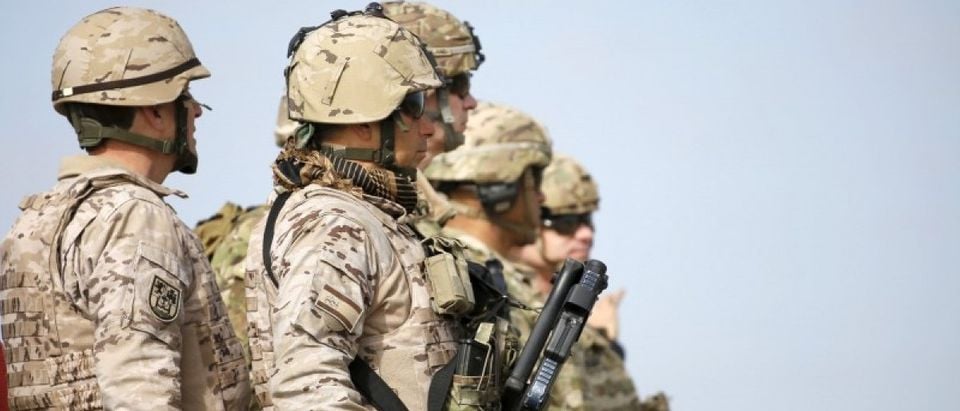A new Department of Defense handbook on transgender persons released Friday instructs service members to be “sensitive” of each other’s preferred pronouns and warns against making “assumptions” about another person’s gender.
The handbook also states that anti-transgender “bias” will not be tolerated and suggests that “attitudes, or comments that marginalize transgender Service members” may constitute harassment.
The 71-page handbook is meant to facilitate the full integration of transgender persons into the U.S. military, in accordance with a policy change in June allowing transgender individuals to openly serve in the armed forces.
The handbook covers topics such as bathroom policies and gender transition procedures and includes a section on “Bullying and Harassment.”
The handbook warns against attitudes that “marginalize” transgender persons and implies such attitudes may constitute harassment.
“The impact harassment can have on Service members should not be underestimated; it has the potential to affect the member both personally and professionally,” the section reads. “Inappropriate jokes, attitudes, or comments that marginalize transgender Service members are damaging to command climate.”
The handbook also includes a section titled, “Tips for Service Members.”
“Your social interactions and developing friendships with peers contribute to a positive work environment,” one of the tips reads. “Do not make assumptions about an individual’s gender or sexual orientation.”
“You should be sensitive to the use of pronouns when addressing others,” another tip says. “This will vary by individual and unit. If there is ever any question about pronoun usage, do not hesitate to ask the Service member how they wish to be addressed.”
Another tip instructs service members to make sure social activities are properly “inclusive.” (RELATED: Trump Promises To Roll Back ‘Political Correctness’ Killing The Military’s ‘Warrior Ethos’)
“Try to ensure planned social activities are inclusive of Service members and their families who may not fit into your perception of what is typical,” the handbook states.
Service members are also instructed to confront one another if their speech isn’t properly inclusive: “If you notice colleagues or peers are expressing opinions that may alienate others, speak up regarding how their statements may impact others.”
If service members express concern over sharing bathrooms and showers with someone of the opposite biological sex, the handbook states, “a commander may employ reasonable accommodations to protect the privacy interests of Service members, while avoiding a stigmatizing impact to any Service member.”
The handbook makes several references to “stigma,” but doesn’t define what makes an action “stigmatizing.”
Commanders are also instructed to “Ensure bullying, bias, harassment, hazing, or any other unacceptable behavior is not tolerated.”


